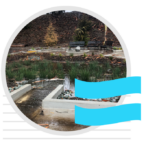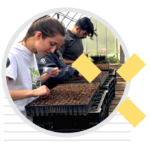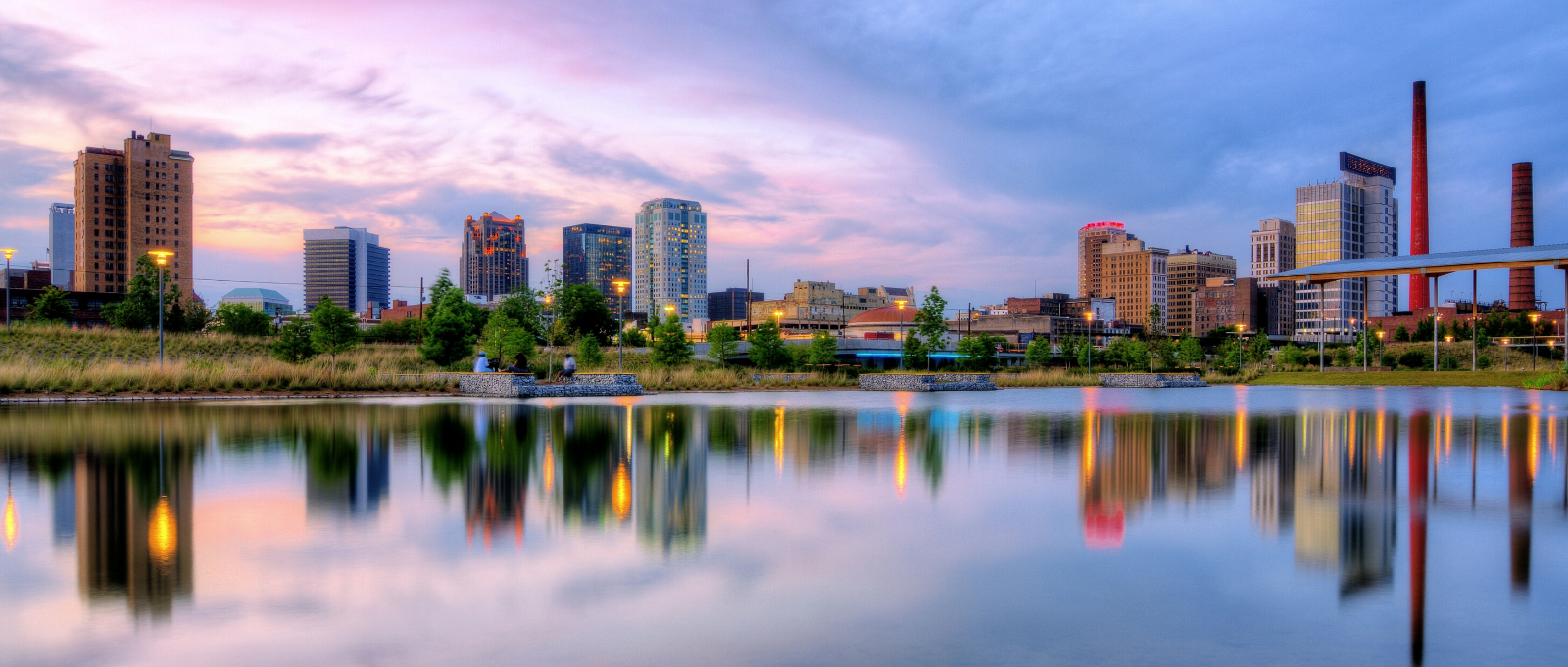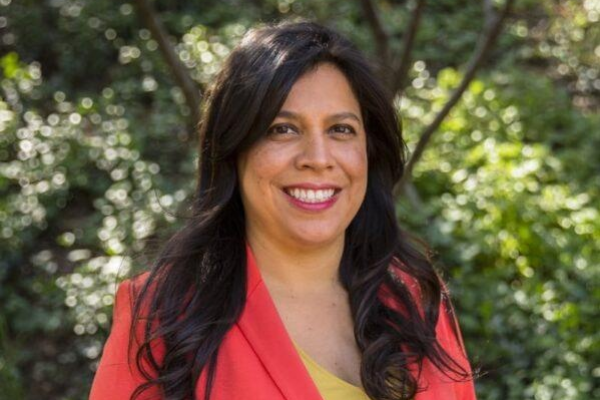February 28, 2023
Topic
Our CivicSpark program recently received a grant from AmeriCorps to expand our research and planning into Alabama, Florida, Georgia, Louisiana, and Mississippi. This American Rescue Plan grant is part of AmeriCorps’ State and National program, a federal-state partnership with a central role for Governor-appointed State Service Commissions. American Rescue Plan grants support organizations like ours for a 12-month planning period to develop new AmeriCorps programs.
“Investing in evidence-based programs is critical to the success of AmeriCorps and the communities we serve,” said AmeriCorps CEO Michael D. Smith. “These inaugural planning grants will give our community partners much-needed time and resources to develop innovative and effective solutions that leverage service to tackle urgent local challenges.”
A Region in Transition
Climate change poses a significant threat to the resilience of communities across the United States, but especially in the U.S. Southeast. Due to geographic location and topography, the region faces increased risks of flooding, extreme heat, and turbulent weather events. Despite these risks, the Southeast contains some of the fastest growing cities in the country according to the latest U.S. Census population estimates. CivicSpark’s model of building capacity for local governments and community organizations to respond to these threats, and ensuring that communities have the resources and infrastructure to become resilient, fits well with the region’s current needs.
CivicSpark Program Director Bill Sadler sees a natural fit. He said, “Our model helps create an equitable workforce development pipeline for green jobs, cultivating and equipping local leaders in these states as they increase their communities’ climate resilience and protect against future threats.”
CivicSpark Southeast Planning Has Begun
We have begun the process of recruiting a Program Expansion Manager based locally in one of the five states. This person will lead the program expansion—cultivating and strengthening relationships with current and potential partners, conducting needs assessments and stakeholder engagement, and modifying the program design to meet local needs.
We are also in the early stages of researching the local climate and resilience capacity needs, and coordinating with state agency leadership to align with statewide priorities.
We have several government and community organization partners who already have a presence in these states, including AARP, the American Society of Adaptation Professionals (who also received an American Rescue Plan grant and whose Board President is CivicWell Climate Change and Energy Program Director Julia Kim), National League of Cities, and ICLEI USA. Many of these partners have expressed support for CivicSpark’s expansion, and we anticipate engaging these relationships as we develop a network of stakeholders in the region.
Stakeholder meetings will help solidify our logic model and partnerships, and we will be hosting convenings in each state with potential partners. CivicSpark staff will facilitate focus groups and begin recruiting partner agencies.
Our primary goals in this 12-month planning period are to establish relationships, research and document community resilience needs, refine our model based on local context, identify capacity gaps and how they may differ from where we currently operate, define program structure changes or adaptations needed, and develop both a sustainability plan and an implementation plan for a potential launch within the following year. We are focusing on developing a program that benefits both urban and rural Southeast communities, as well as vulnerable and marginalized communities.
Applying Learnings from Recent Expansion
This expansion opportunity builds on CivicSpark’s recent successful expansion to Colorado and Washington. Fellows began serving in both states last September alongside our Fellows in California, where we have run the program for nine years.
“Planning for this recent expansion taught us that there are many common resilience challenges facing communities around the United States, and that there is great interest among government agencies and community organizations beyond California in utilizing our model to build their capacity and promote workforce development,” Sadler stated. “We have created something really unique and transformative, and the CivicSpark team looks forward to cultivating partnerships with other communities interested in improving their resilience.”
Since 2014, at least 620 Members of CivicSpark have provided 900,000 hours of service to more than 320 public organizations through over 875 projects. We look forward to applying the lessons we’ve learned to this new region, and learn from local experts about regional needs.
For California agencies, the 23-24 CivicSpark Partner Application is now live! We are accepting applications on a rolling basis through April, but encourage you to apply as early as possible so your project is first in line once we launch our Fellow Application on March 13. Hosting a CivicSpark Fellow is a proven way to achieve results on your resilience projects. Our latest evaluation report shows that participating organizations are more likely to meet or exceed their project goals.

Policy Corner
February 17 marked the deadline for the introduction of new bills for the first year of the 2023-24 legislative session and included at least two notable aspects. First, the number of bills offered was usually large at over 2600 bills—more than 1750 bills in the Assembly and 880 bills in the Senate. Second, a very significant percentage of the bills are placeholders, that is, bills which identify the subject they intend to address but without any developed substance. Such bills are known as “spot bills” and must be fleshed out during March in order to be referred to policy committees for hearing this year. Climate, housing, transportation, water, and energy remain hot topics of interest to legislators. CivicWell is already deeply engaged on four bills.
SB 511 by Senator Catherine Blakespear
SB 511 would direct the California Air Resources Board (CARB) to prepare and provide greenhouse gas (GHG) emission inventories to local governments for their use in preparing Climate Action Plans (CAPs) and to target climate investments in an optimal manner to achieve the greatest results and advance equity for vulnerable and disadvantaged communities. Contra Costa County is a co-sponsor of the bill along with CivicWell.
SB 511 would fill a significant gap in the work done by local governments to address climate change. While important actions have been taken and resources allocated at the state level, it is local communities and governments that are on the front lines of meeting the challenge. This bill, in directing CARB to assemble and share GHG emission inventories with local governments, would provide critical data essential to the task of drafting the best CAPs possible and making the best decisions on the application of available resources to benefit communities. The bill would have four major benefits:
- comprehensive coverage across the state
- data and methodology consistency
- visibility into patterns and progress
- reduced cost in generating GHG emission profiles
AB 930 by Assemblymember Laura Friedman
AB 930 would permit two or more local governments to form a Reinvestment in Infrastructure for a Sustainable and Equitable California (RISE) district to use tax increment financing (TIF) and other funding for infrastructure, affordable housing, and other purposes in location-efficient areas. CivicWell has joined with the Council of Infill Builders and the San Francisco Bay Area Planning and Research Association (SPUR) to co-sponsor the bill.
AB 930 remedies barriers to equitable and climate-friendly infill development by providing a long-missing source of financing for jurisdictions that opt in to form a RISE district. Building on the planning framework of SB 375 (Steinberg, 2008) and performance standards of the Neighborhood Infill Finance and Transit Improvements (NIFTI) Act in AB 1568 (Bloom, 2017), RISE would provide participating local governments access to a new state revolving loan fund for equitable infill projects, subject to meeting planning and development standards to be issued by the state. The greenhouse gas reduction fund will provide the seed capital for the revolving loans, to be paid back over time by RISE districts, with requirements for affordable housing and transit operation set-asides. RISE districts can in turn issue bonds based on future property and sales/transactions tax increments, as well as state sales tax increment within the districts.
AB 6 and AB 7 by Assemblymember Friedman
AB 6 and AB 7 are follow ups to last year’s AB 2237, which died in the Senate, and AB 2438, which was vetoed by the Governor. Currently, the two bills are “spot bills” but the focus is to harmonize local and state transportation investments with the state’s climate objectives. Transportation accounts for 40% of GHG emissions and without dramatically accelerating projects that will help reduce GHG emissions and reconsidering projects that will add vehicle capacity and therefore GHG emissions, it will not be possible to meet the state’s climate goals. CivicWell is working with an expansive set of stakeholders to formulate an approach that will engender strong support for resolving this issue and improving land use and transportation coordination.
Board Highlight
Cindy Montañez Advocates for State Urban Greening Funding
San Fernando City Councilmember, TreePeople CEO, and CivicWell Board Member Cindy Montañez’s work to move urban greening forward and protect its funding in the state budget were profiled in a recent Spectrum News 1 article:
“This isn’t about beauty — although the results are beautiful. Montañez, who is now the CEO of the nonprofit TreePeople, says this is about public health and equity.
‘The trees are frontline defense,’ she said. ‘When you think about extreme heat, the minute you walk out your door, the thing that could protect you the best is having shade.’
That used to be in short supply in San Fernando and is still the reality in many communities like it.
‘What you see in many of these urban communities is that tree canopy coverage is less than 10%,’ Montañez added.
Addressing that disparity is a big part of TreePeople’s mission so she was dismayed to see the proposed state budget included substantially less money for these types of projects.”






